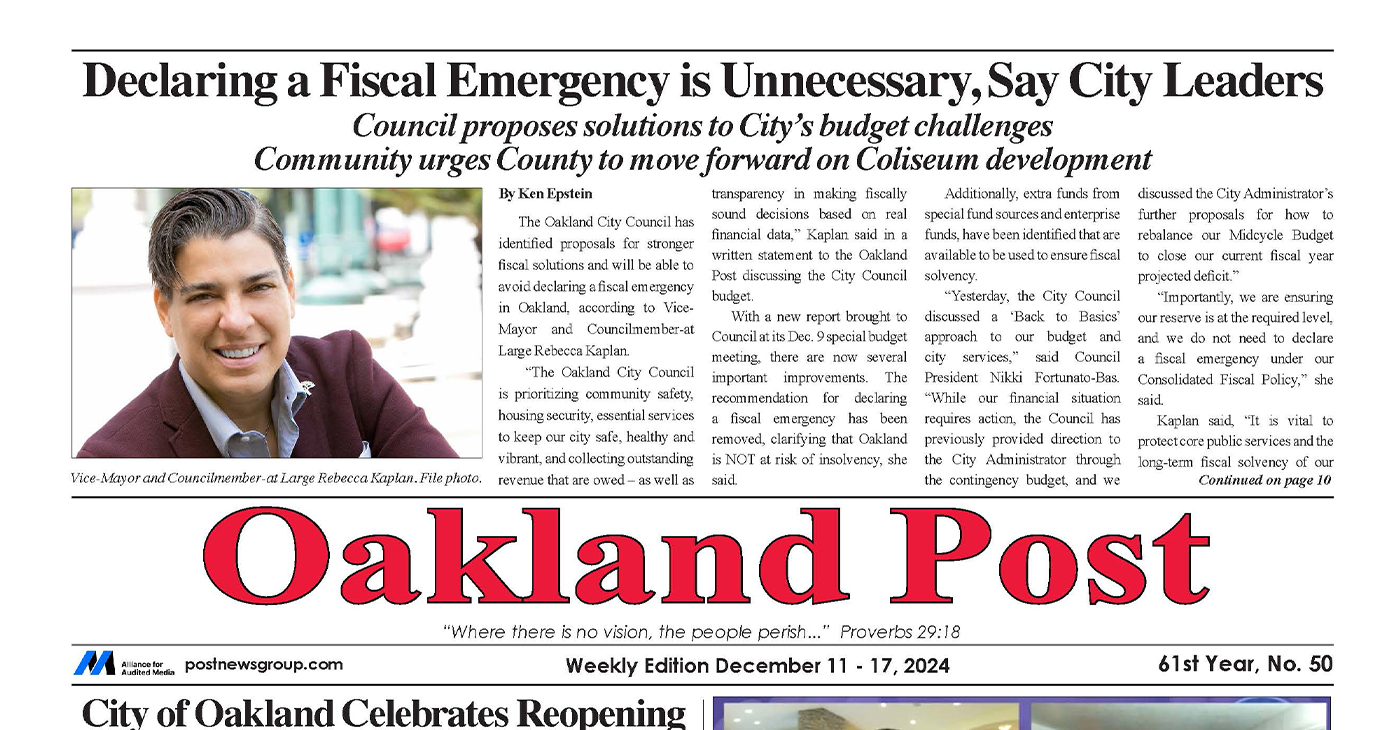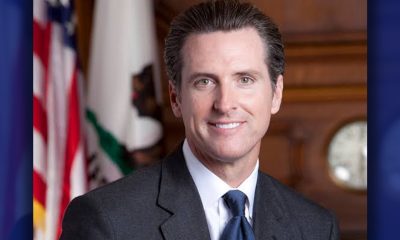Business
Once Vilified, BP Now Getting Credit for Gulf Tourism Boom

In this Wednesday, May 13, 2015 photo, tourists line the beaches in Gulf Shores, Ala. Industry officials say Gulf Coast tourism is surging, five years after the BP oil spill. (AP Photo/Brynn Anderson)
JAY REEVES, Associated Press
ORANGE BEACH, Ala. (AP) — With the Memorial Day holiday here, fallout from the oil spill that left Gulf Coast beaches smeared with gooey tar balls and scared away visitors in 2010 is being credited, oddly, with something no one imagined back then: An increase in tourism in the region.
Five years after the BP disaster, the petroleum giant that was vilified during heated town hall meetings for killing a way of life is now being praised by some along the coast for spending more than $230 million to help lure visitors back to an area that some feared would die because of the spill.
Questions remain about the long-term environmental impacts of the BP disaster, with a report released just last week finding a definite link between the spill and a record die-off of the bottlenose dolphins that tourists love to spot along the northern Gulf Coast. Pockets of oil still blot the sea floor and spots along Louisiana’s coast.
Meanwhile, many are still wrangling with BP over spill-related claims. Attorneys for businesses and individuals claiming damages from the spill announced a $211 million settlement last week with Transocean Ltd., owner of the failed Deepwater Horizon drilling rig.
Yet, at the same time, parking lots are full outside the same coastal hotels and condominium towers that struggled for business and slashed prices while crude was pouring into the gulf off Louisiana’s coast in 2010.
Visitors bob in surf where oil once washed in, and some restaurants have 90-minute waits for dinner on the weekend. Tourist business has doubled in Alabama’s largest beach towns since before the spill, officials say, and Pensacola Beach, Florida, is so clogged with visitors that traffic is a primary problem.
Many attribute the change in large part to the millions of dollars that BP spent on tourism grants and advertising that promoted the Gulf Coast nationwide to people who previously didn’t even realize that Alabama and Mississippi had coastlines.
“I’ve traveled as recently as the spring to California and there were people there who were saying, ‘Hey, I saw those commercials about Alabama,” said coastal condominium developer Bill Brett. “I really think those commercials helped.”
Brett is an owner of Brett/Robinson Real Estate, where he said business is up about 30 percent since the year before the spill. The company has developed 19 buildings with more than 3,200 condo units on the Alabama coast, including one that was finished with a $37 million settlement from BP after the spill.
The tourism surge isn’t happening in a vacuum: Many U.S. attractions have seen big increases during the same period as the economy recovered following the 2008 financial crisis and Americans returned to the road.
The theme parks of Orlando, Florida, helped draw a record 62 million visitors to the city last year, and the U.S. Travel Association expects Americans to spend about 5 percent more this Memorial Day than last.
But back in 2010, there were questions and fears over whether the tourist economy of the northern Gulf Coast would ever recover from the spill. Residents feared that images of oil-soaked birds and blackened beaches would permanently change travel patterns and leave towns like Gulf Shores, Alabama, and Destin, Florida, as the forgotten coast.
Ted Scarritt, who offers tourist cruises in Orange Beach aboard his 53-foot catamaran “Wild Hearts,” remembers crying and praying while the spill was happening. Scarritt, who also owns a beach service company, purchased the sailboat only months before the spill and had to keep it out of the oil-marred waters that summer.
Today all that seems like a bad, distant dream as he watches clear gulf waters slide past the hull during an afternoon of sailing off Alabama’s coast.
“We’re just amazingly thankful,” said Scarritt. “I think our area has recovered profoundly. You can look at the water right now, you can look at the beach. We’re fine.”
Picking up shells in the surf at Pensacola Beach, Autumn Ventling of Nashville, Tennessee, didn’t realize the spill ever occurred; she was just 18 at the time. Today, she said the white-sand beach and emerald-colored water appear beautiful, just like so many other beaches on the Gulf Coast.
“I can’t tell anything happened,” said Ventling, 23.
Part of that is because of a massive cleanup program BP conducted on beaches after the spill. For months, big machines with metal sifters dug deep to remove remaining mats of tar from the sand, which was then spread back on the seashore.
While the cleanup work was going on, BP was also shelling out cash to revive tourism.
BP spokesman Jason Ryan said the company provided $179 million in tourism promotion grants to the gulf states of Alabama, Florida, Louisiana and Mississippi, and it aired commercials nationally touting the region as recently as early 2013. The company hasn’t disclosed the cost of the spots, he said.
But under an agreement with plaintiff’s attorney who sued over the spill, BP provided another $57 million for private groups and government to promote tourism and seafood on the Gulf Coast.
The rebound has been a relief to people like Jeanne Dailey, owner of Newman-Dailey Vacation Rentals in Destin.
During the long summer of 2010, Dailey spent many sleepless nights fearing oil would wash ashore and kill the tourism business. The Destin area never got the heavy patches of oil that polluted Alabama beaches, Mississippi coastal islands and the boot of Louisiana, but the perception that the entire coast was coated in oil prompted hundreds of vacationers to cancel travel plans, she said.
“Once I made peace with the fact that I might have to declare bankruptcy, things started to get better,” she said.
BP’s ad campaign combined with sales incentives combined to lure people back to the area eventually led to a strong rebound, Dailey said. Five years later, her business is thriving and preparing to mark its 30th anniversary.
___
AP writer Melissa Nelson-Gabriel contributed to this story from Pensacola Beach, Florida.
Copyright 2015 The Associated Press. All rights reserved. This material may not be published, broadcast, rewritten or redistributed.
Activism
BWOPA Honors Black Leadership and Legacy at 2024 Ella Hill Hutch Awards Dinner
On Dec. 5, BWOPA held its Annual Ella Hill Hutch Awards Ceremony, at the Fairmont Claremont Hotel in the Oakland/Berkeley Hills. At the event, the group comprised of Black women from various professional backgrounds, honored distinguished local and state leaders whose contributions have shaped civic engagement and advanced critical social issues impacting Black communities.

By Oakland Post Staff
Black Women Organized for Political Action (BWOPA) is a statewide non-profit advocacy and membership organization committed to solving problems affecting Black Californians.
On Dec. 5, BWOPA held its Annual Ella Hill Hutch Awards Ceremony, at the Fairmont Claremont Hotel in the Oakland/Berkeley Hills.
At the event, the group comprised of Black women from various professional backgrounds, honored distinguished local and state leaders whose contributions have shaped civic engagement and advanced critical social issues impacting Black communities.
The evening was hosted by Dr. Shawna Charles, founder of The Charles Communications Group (CCG) headquartered in Los Angeles. Charles served as mistress of ceremonies.
With a track record of elevating voices and empowering communities, Charles’ leadership and insight brought a certain dynamism to the celebration.
“Each year, this event not only celebrates the enduring legacy of our beloved BWOPA founding member, Ella Hill Hutch, but also reaffirms and amplifies our unwavering commitment to building and sustaining Black political power across California,” said Dezie Woods-Jones, BWOPA founding member and State president.
“Ella Hill Hutch’s trailblazing leadership continues to inspire us as we forge ahead, empowering Black women to lead, advocate, and shape a more equitable future for all,” added Woods-Jones.
This year’s event introduced the DWJ Rising Star Award, honoring young leaders like Solano County Board Supervisors-elect Cassandra James, Danielle Motley-Lewis, Naomi Waters and newly elected State Assemblymember elect Rhodesia Ransom (D-Stockton).
According to organizers, the awardees all exemplify “the next generation of changemakers.”
Other awardees included:
- Lifetime Achievement Awardees: Congresswoman Barbara Lee (D-CA-12) and Alameda County Supervisor Keith Carson
- Man of the Year: Kenneth Maxey, CEO of the Greater SF Bay Area Urban League
- President’s Corporate Award: Yvette Radford, Kaiser Permanente
- In the Spirit of Ella State and Chapter Awards: Dr. Carolyn Greene, Dr. Marcella K. Smith, Dr. Carolyn Drake, Tinisch Hollins, Jackie Jones, Gloria Burgess Johnson, Tamika L’Ecluse, Ellen Nash, Betty Reid Soskin, and Ay’Anna Moody.
BWOPA also celebrated local champions across its chapters, including leaders in voter education, healthcare, criminal justice reform, and community advocacy.
In a statement, BWOPA said, “Honoring Ella Hill Hutch’s legacy, BWOPA recognizes her pioneering efforts as the first Black woman elected to the San Francisco Board of Supervisors. Her tireless work amplifying underrepresented voices continues to inspire BWOPA’s mission to build Black political power across California.”
“We extend our heartfelt thanks to our members, partners and allies who believe in BWOPA’s vision to invest in building power for Black women’s leadership,” said LaNiece Jones, BWOPA State executive director. “Your support ensures that Black women have a voice at decision-making tables locally, regionally, statewide, and nationally, advancing diversity and equity in leadership spaces.”
Activism
Oakland Post: Week of December 11 – 17, 2024
The printed Weekly Edition of the Oakland Post: Week of December 11 – 17, 2024

To enlarge your view of this issue, use the slider, magnifying glass icon or full page icon in the lower right corner of the browser window. ![]()
Activism
Post News Group to Host Second Town Hall on Racism, Hate Crimes
The mission of CRD is to protect the people of California from unlawful discrimination in employment, housing and public accommodations (businesses) and from hate violence and human trafficking in accordance with the Fair Employment and Housing Act (FEHA), Unruh Civil Rights Act, Disabled Persons Act, and Ralph Civil Rights Act. The employment anti-discrimination provisions of the FEHA apply to public and private employers, labor organizations and employment agencies. “Housing providers” includes public and private owners, real estate agents and brokers, banks, mortgage companies, and financial institutions.


By Oakland Post Staff
On Tuesday, Dec. 10, from 5-6:30 p.m. PT, Post News Group Global Features Journalist Carla Thomas will host a second Virtual Town Hall on Racism.
Guests will include community builders Trevor Parham of Oakstop and Shawn Granberry of Hip Hop TV.
“There’s been an uptick of blatant racist acts going on in the community and it’s important for communities to have a forum, an outlet, and to be educated on the California Vs. Hate initiative that has resources available for victims and witnesses,” said Thomas. People like Trevor Parham and Shawn Granberry have found a multitude of ways to strengthen, heal, and protect the community through their entrepreneurial networks, special events, and mentoring.”
While community leaders step up, the state has added extra support with the CA vs. Hate, initiative, a non-emergency hate incident and hate crime reporting system to support individuals and communities targeted for hate.
“We are committed to making California a safer and inclusive place for all,” said James Williams, Jr. of the California Civil Rights Department.
In partnership with organizations across the state, the network is designed to support and protect diverse and underserved communities.
“Through CA vs. Hate, we support individuals and communities targeted for hate, identify options for next steps after an act of hate, and connect people with culturally competent resources and care coordination services,” said Williams.
“It’s important to report these incidents in order for us to use the data to enhance prevention and response services,” said Williams.
Funded by the California State Legislature, the California Civil Rights Department (CRD) received funding and authorization from the State Legislature to establish the non-emergency, CA vs. Hate Resource Line and Network to support individuals and communities targeted for hate.
The mission of CRD is to protect the people of California from unlawful discrimination in employment, housing and public accommodations (businesses) and from hate violence and human trafficking in accordance with the Fair Employment and Housing Act (FEHA), Unruh Civil Rights Act, Disabled Persons Act, and Ralph Civil Rights Act. The employment anti-discrimination provisions of the FEHA apply to public and private employers, labor organizations and employment agencies. “Housing providers” includes public and private owners, real estate agents and brokers, banks, mortgage companies, and financial institutions.
CRD began in 1959 with the creation of the Fair Employment Practices Commission to implement California’s first state-wide protections against discrimination in the workplace. In 1980, the 1959 Fair Employment Practices Act, and the 1963 Rumford Fair Housing Act were combined and rebranded FEHA. The Fair Employment Practices Commission became a department-level agency named the Department of Fair Employment and Housing (DFEH) to enforce that law.
In July 2022, DFEH’s name changed to CRD to more accurately reflect the Department’s powers and duties, which include enforcement of laws prohibiting hate violence, human trafficking, discrimination in business establishments, and discrimination in government-funded programs and activities, among others.
For more information visit the PostNewsGroup.com and CAvsHATE.ORG.
-

 Activism4 weeks ago
Activism4 weeks agoOakland Post: Week of November 20 – 26, 2024
-

 California Black Media3 weeks ago
California Black Media3 weeks agoCalifornia to Offer $43.7 Million in Federal Grants to Combat Hate Crimes
-

 Activism4 weeks ago
Activism4 weeks agoAn Inside Look into How San Francisco Analyzes Homeless Encampments
-

 Black History3 weeks ago
Black History3 weeks agoEmeline King: A Trailblazer in the Automotive Industry
-

 California Black Media3 weeks ago
California Black Media3 weeks agoCalifornia Department of Aging Offers Free Resources for Family Caregivers in November
-

 California Black Media3 weeks ago
California Black Media3 weeks agoGov. Newsom Goes to Washington to Advocate for California Priorities
-

 Activism3 weeks ago
Activism3 weeks agoOCCUR Hosts “Faith Forward” Conference in Oakland
-

 #NNPA BlackPress4 weeks ago
#NNPA BlackPress4 weeks agoPRESS ROOM: Clyburn, Pressley, Scanlon, Colleagues Urge Biden to Use Clemency Power to Address Mass Incarceration Before Leaving Office
Business
Once Vilified, BP Now Getting Credit for Gulf Tourism Boom

In this Wednesday, May 13, 2015 photo, tourists line the beaches in Gulf Shores, Ala. Industry officials say Gulf Coast tourism is surging, five years after the BP oil spill. (AP Photo/Brynn Anderson)
JAY REEVES, Associated Press
ORANGE BEACH, Ala. (AP) — With the Memorial Day holiday here, fallout from the oil spill that left Gulf Coast beaches smeared with gooey tar balls and scared away visitors in 2010 is being credited, oddly, with something no one imagined back then: An increase in tourism in the region.
Five years after the BP disaster, the petroleum giant that was vilified during heated town hall meetings for killing a way of life is now being praised by some along the coast for spending more than $230 million to help lure visitors back to an area that some feared would die because of the spill.
Questions remain about the long-term environmental impacts of the BP disaster, with a report released just last week finding a definite link between the spill and a record die-off of the bottlenose dolphins that tourists love to spot along the northern Gulf Coast. Pockets of oil still blot the sea floor and spots along Louisiana’s coast.
Meanwhile, many are still wrangling with BP over spill-related claims. Attorneys for businesses and individuals claiming damages from the spill announced a $211 million settlement last week with Transocean Ltd., owner of the failed Deepwater Horizon drilling rig.
Yet, at the same time, parking lots are full outside the same coastal hotels and condominium towers that struggled for business and slashed prices while crude was pouring into the gulf off Louisiana’s coast in 2010.
Visitors bob in surf where oil once washed in, and some restaurants have 90-minute waits for dinner on the weekend. Tourist business has doubled in Alabama’s largest beach towns since before the spill, officials say, and Pensacola Beach, Florida, is so clogged with visitors that traffic is a primary problem.
Many attribute the change in large part to the millions of dollars that BP spent on tourism grants and advertising that promoted the Gulf Coast nationwide to people who previously didn’t even realize that Alabama and Mississippi had coastlines.
“I’ve traveled as recently as the spring to California and there were people there who were saying, ‘Hey, I saw those commercials about Alabama,” said coastal condominium developer Bill Brett. “I really think those commercials helped.”
Brett is an owner of Brett/Robinson Real Estate, where he said business is up about 30 percent since the year before the spill. The company has developed 19 buildings with more than 3,200 condo units on the Alabama coast, including one that was finished with a $37 million settlement from BP after the spill.
The tourism surge isn’t happening in a vacuum: Many U.S. attractions have seen big increases during the same period as the economy recovered following the 2008 financial crisis and Americans returned to the road.
The theme parks of Orlando, Florida, helped draw a record 62 million visitors to the city last year, and the U.S. Travel Association expects Americans to spend about 5 percent more this Memorial Day than last.
But back in 2010, there were questions and fears over whether the tourist economy of the northern Gulf Coast would ever recover from the spill. Residents feared that images of oil-soaked birds and blackened beaches would permanently change travel patterns and leave towns like Gulf Shores, Alabama, and Destin, Florida, as the forgotten coast.
Ted Scarritt, who offers tourist cruises in Orange Beach aboard his 53-foot catamaran “Wild Hearts,” remembers crying and praying while the spill was happening. Scarritt, who also owns a beach service company, purchased the sailboat only months before the spill and had to keep it out of the oil-marred waters that summer.
Today all that seems like a bad, distant dream as he watches clear gulf waters slide past the hull during an afternoon of sailing off Alabama’s coast.
“We’re just amazingly thankful,” said Scarritt. “I think our area has recovered profoundly. You can look at the water right now, you can look at the beach. We’re fine.”
Picking up shells in the surf at Pensacola Beach, Autumn Ventling of Nashville, Tennessee, didn’t realize the spill ever occurred; she was just 18 at the time. Today, she said the white-sand beach and emerald-colored water appear beautiful, just like so many other beaches on the Gulf Coast.
“I can’t tell anything happened,” said Ventling, 23.
Part of that is because of a massive cleanup program BP conducted on beaches after the spill. For months, big machines with metal sifters dug deep to remove remaining mats of tar from the sand, which was then spread back on the seashore.
While the cleanup work was going on, BP was also shelling out cash to revive tourism.
BP spokesman Jason Ryan said the company provided $179 million in tourism promotion grants to the gulf states of Alabama, Florida, Louisiana and Mississippi, and it aired commercials nationally touting the region as recently as early 2013. The company hasn’t disclosed the cost of the spots, he said.
But under an agreement with plaintiff’s attorney who sued over the spill, BP provided another $57 million for private groups and government to promote tourism and seafood on the Gulf Coast.
The rebound has been a relief to people like Jeanne Dailey, owner of Newman-Dailey Vacation Rentals in Destin.
During the long summer of 2010, Dailey spent many sleepless nights fearing oil would wash ashore and kill the tourism business. The Destin area never got the heavy patches of oil that polluted Alabama beaches, Mississippi coastal islands and the boot of Louisiana, but the perception that the entire coast was coated in oil prompted hundreds of vacationers to cancel travel plans, she said.
“Once I made peace with the fact that I might have to declare bankruptcy, things started to get better,” she said.
BP’s ad campaign combined with sales incentives combined to lure people back to the area eventually led to a strong rebound, Dailey said. Five years later, her business is thriving and preparing to mark its 30th anniversary.
___
AP writer Melissa Nelson-Gabriel contributed to this story from Pensacola Beach, Florida.
Copyright 2015 The Associated Press. All rights reserved. This material may not be published, broadcast, rewritten or redistributed.
Activism
BWOPA Honors Black Leadership and Legacy at 2024 Ella Hill Hutch Awards Dinner
On Dec. 5, BWOPA held its Annual Ella Hill Hutch Awards Ceremony, at the Fairmont Claremont Hotel in the Oakland/Berkeley Hills. At the event, the group comprised of Black women from various professional backgrounds, honored distinguished local and state leaders whose contributions have shaped civic engagement and advanced critical social issues impacting Black communities.

By Oakland Post Staff
Black Women Organized for Political Action (BWOPA) is a statewide non-profit advocacy and membership organization committed to solving problems affecting Black Californians.
On Dec. 5, BWOPA held its Annual Ella Hill Hutch Awards Ceremony, at the Fairmont Claremont Hotel in the Oakland/Berkeley Hills.
At the event, the group comprised of Black women from various professional backgrounds, honored distinguished local and state leaders whose contributions have shaped civic engagement and advanced critical social issues impacting Black communities.
The evening was hosted by Dr. Shawna Charles, founder of The Charles Communications Group (CCG) headquartered in Los Angeles. Charles served as mistress of ceremonies.
With a track record of elevating voices and empowering communities, Charles’ leadership and insight brought a certain dynamism to the celebration.
“Each year, this event not only celebrates the enduring legacy of our beloved BWOPA founding member, Ella Hill Hutch, but also reaffirms and amplifies our unwavering commitment to building and sustaining Black political power across California,” said Dezie Woods-Jones, BWOPA founding member and State president.
“Ella Hill Hutch’s trailblazing leadership continues to inspire us as we forge ahead, empowering Black women to lead, advocate, and shape a more equitable future for all,” added Woods-Jones.
This year’s event introduced the DWJ Rising Star Award, honoring young leaders like Solano County Board Supervisors-elect Cassandra James, Danielle Motley-Lewis, Naomi Waters and newly elected State Assemblymember elect Rhodesia Ransom (D-Stockton).
According to organizers, the awardees all exemplify “the next generation of changemakers.”
Other awardees included:
- Lifetime Achievement Awardees: Congresswoman Barbara Lee (D-CA-12) and Alameda County Supervisor Keith Carson
- Man of the Year: Kenneth Maxey, CEO of the Greater SF Bay Area Urban League
- President’s Corporate Award: Yvette Radford, Kaiser Permanente
- In the Spirit of Ella State and Chapter Awards: Dr. Carolyn Greene, Dr. Marcella K. Smith, Dr. Carolyn Drake, Tinisch Hollins, Jackie Jones, Gloria Burgess Johnson, Tamika L’Ecluse, Ellen Nash, Betty Reid Soskin, and Ay’Anna Moody.
BWOPA also celebrated local champions across its chapters, including leaders in voter education, healthcare, criminal justice reform, and community advocacy.
In a statement, BWOPA said, “Honoring Ella Hill Hutch’s legacy, BWOPA recognizes her pioneering efforts as the first Black woman elected to the San Francisco Board of Supervisors. Her tireless work amplifying underrepresented voices continues to inspire BWOPA’s mission to build Black political power across California.”
“We extend our heartfelt thanks to our members, partners and allies who believe in BWOPA’s vision to invest in building power for Black women’s leadership,” said LaNiece Jones, BWOPA State executive director. “Your support ensures that Black women have a voice at decision-making tables locally, regionally, statewide, and nationally, advancing diversity and equity in leadership spaces.”
Activism
Oakland Post: Week of December 11 – 17, 2024
The printed Weekly Edition of the Oakland Post: Week of December 11 – 17, 2024

To enlarge your view of this issue, use the slider, magnifying glass icon or full page icon in the lower right corner of the browser window. ![]()
Activism
Post News Group to Host Second Town Hall on Racism, Hate Crimes
The mission of CRD is to protect the people of California from unlawful discrimination in employment, housing and public accommodations (businesses) and from hate violence and human trafficking in accordance with the Fair Employment and Housing Act (FEHA), Unruh Civil Rights Act, Disabled Persons Act, and Ralph Civil Rights Act. The employment anti-discrimination provisions of the FEHA apply to public and private employers, labor organizations and employment agencies. “Housing providers” includes public and private owners, real estate agents and brokers, banks, mortgage companies, and financial institutions.


By Oakland Post Staff
On Tuesday, Dec. 10, from 5-6:30 p.m. PT, Post News Group Global Features Journalist Carla Thomas will host a second Virtual Town Hall on Racism.
Guests will include community builders Trevor Parham of Oakstop and Shawn Granberry of Hip Hop TV.
“There’s been an uptick of blatant racist acts going on in the community and it’s important for communities to have a forum, an outlet, and to be educated on the California Vs. Hate initiative that has resources available for victims and witnesses,” said Thomas. People like Trevor Parham and Shawn Granberry have found a multitude of ways to strengthen, heal, and protect the community through their entrepreneurial networks, special events, and mentoring.”
While community leaders step up, the state has added extra support with the CA vs. Hate, initiative, a non-emergency hate incident and hate crime reporting system to support individuals and communities targeted for hate.
“We are committed to making California a safer and inclusive place for all,” said James Williams, Jr. of the California Civil Rights Department.
In partnership with organizations across the state, the network is designed to support and protect diverse and underserved communities.
“Through CA vs. Hate, we support individuals and communities targeted for hate, identify options for next steps after an act of hate, and connect people with culturally competent resources and care coordination services,” said Williams.
“It’s important to report these incidents in order for us to use the data to enhance prevention and response services,” said Williams.
Funded by the California State Legislature, the California Civil Rights Department (CRD) received funding and authorization from the State Legislature to establish the non-emergency, CA vs. Hate Resource Line and Network to support individuals and communities targeted for hate.
The mission of CRD is to protect the people of California from unlawful discrimination in employment, housing and public accommodations (businesses) and from hate violence and human trafficking in accordance with the Fair Employment and Housing Act (FEHA), Unruh Civil Rights Act, Disabled Persons Act, and Ralph Civil Rights Act. The employment anti-discrimination provisions of the FEHA apply to public and private employers, labor organizations and employment agencies. “Housing providers” includes public and private owners, real estate agents and brokers, banks, mortgage companies, and financial institutions.
CRD began in 1959 with the creation of the Fair Employment Practices Commission to implement California’s first state-wide protections against discrimination in the workplace. In 1980, the 1959 Fair Employment Practices Act, and the 1963 Rumford Fair Housing Act were combined and rebranded FEHA. The Fair Employment Practices Commission became a department-level agency named the Department of Fair Employment and Housing (DFEH) to enforce that law.
In July 2022, DFEH’s name changed to CRD to more accurately reflect the Department’s powers and duties, which include enforcement of laws prohibiting hate violence, human trafficking, discrimination in business establishments, and discrimination in government-funded programs and activities, among others.
For more information visit the PostNewsGroup.com and CAvsHATE.ORG.
-

 Activism4 weeks ago
Activism4 weeks agoOakland Post: Week of November 20 – 26, 2024
-

 California Black Media3 weeks ago
California Black Media3 weeks agoCalifornia to Offer $43.7 Million in Federal Grants to Combat Hate Crimes
-

 Activism4 weeks ago
Activism4 weeks agoAn Inside Look into How San Francisco Analyzes Homeless Encampments
-

 Black History3 weeks ago
Black History3 weeks agoEmeline King: A Trailblazer in the Automotive Industry
-

 California Black Media3 weeks ago
California Black Media3 weeks agoCalifornia Department of Aging Offers Free Resources for Family Caregivers in November
-

 California Black Media3 weeks ago
California Black Media3 weeks agoGov. Newsom Goes to Washington to Advocate for California Priorities
-

 Activism3 weeks ago
Activism3 weeks agoOCCUR Hosts “Faith Forward” Conference in Oakland
-

 #NNPA BlackPress4 weeks ago
#NNPA BlackPress4 weeks agoPRESS ROOM: Clyburn, Pressley, Scanlon, Colleagues Urge Biden to Use Clemency Power to Address Mass Incarceration Before Leaving Office



























































![[ENCORE] DOJ Visit and Independence Day. Conversation with author Juliet Mitchell](https://www.postnewsgroup.com/wp-content/uploads/2023/12/0ZCxBY4-cyg-300x225.jpg)

Leave a Reply